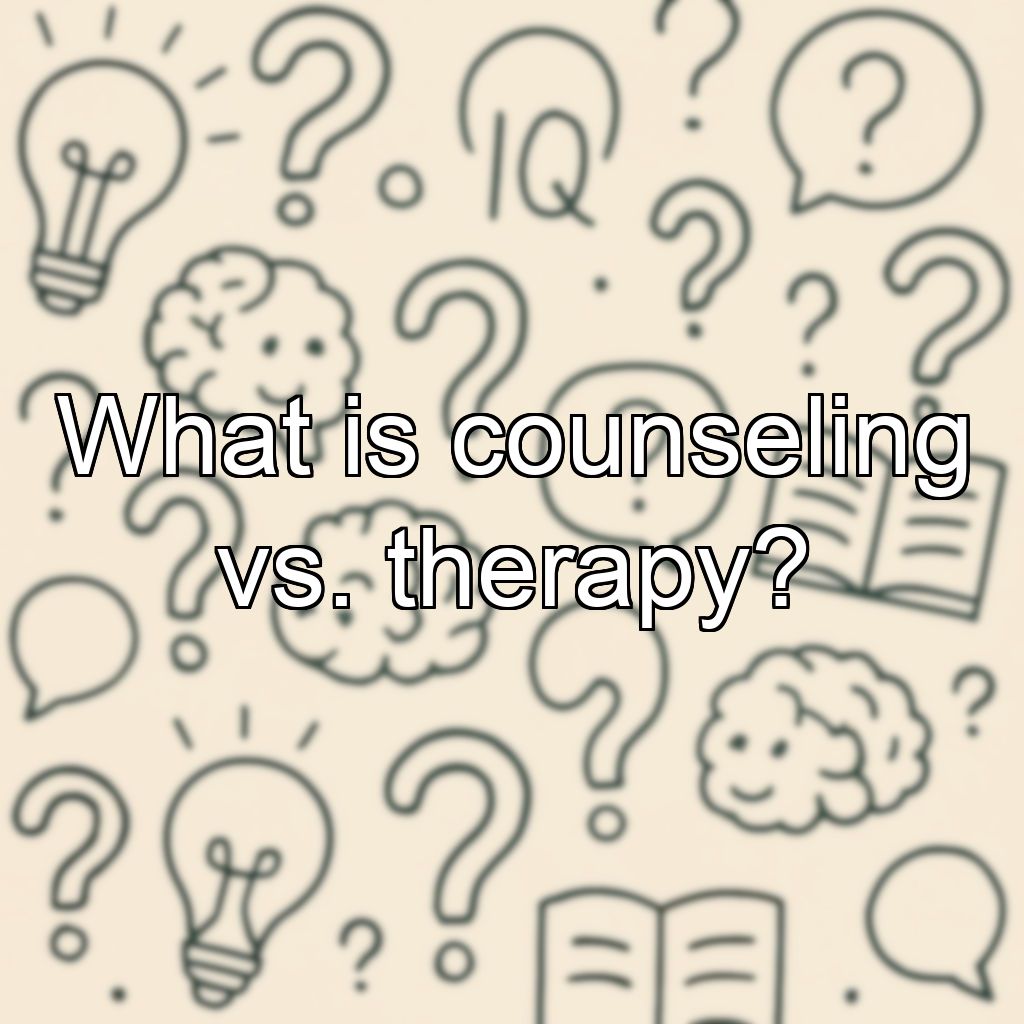What is counseling vs. therapy?

Counseling vs. Therapy: Understanding the Differences
While the terms counseling and therapy are often used interchangeably, they have distinct meanings and purposes within the mental health field.
What is Counseling?
- Focus: Counseling typically addresses specific issues or challenges, such as stress management, relationship problems, or career decisions.
- Duration: It is often short-term and goal-oriented, designed to help individuals find solutions to particular problems.
- Approach: Counselors provide guidance, support, and practical strategies to help clients cope with current difficulties.
- Settings: Counseling can occur in schools, community centers, and workplaces, as well as private practice.
What is Therapy?
- Focus: Therapy (also called psychotherapy) addresses a broader range of mental health concerns, including emotional distress, mental illnesses, and patterns of behavior or thought.
- Duration: Therapy is often longer-term, allowing for deeper exploration of underlying issues, trauma, or longstanding difficulties.
- Approach: Therapists use various techniques (such as cognitive-behavioral, psychodynamic, or humanistic approaches) to help clients gain insight and make lasting changes.
- Providers: Therapy is typically conducted by licensed mental health professionals such as psychologists, social workers, or licensed therapists.
Summary Table
- Counseling: Short-term, issue-focused, practical support.
- Therapy: Long-term, deep exploration, mental health treatment.
While there is overlap between counseling and therapy, the main differences lie in their focus, duration, and depth of intervention. Both play important roles in supporting mental health and well-being.